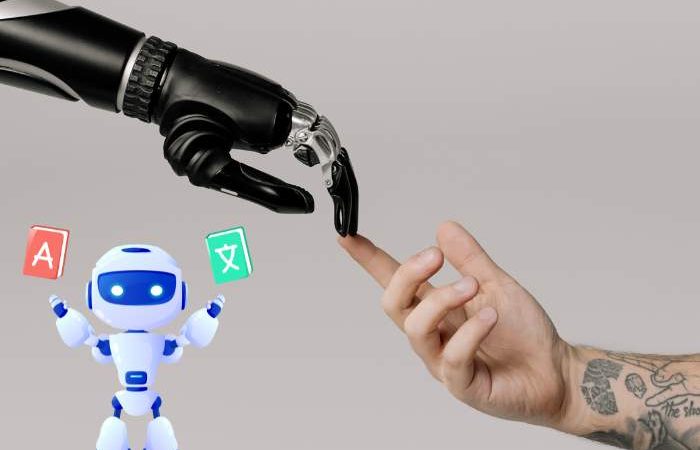
The Ethical Dilemma of AI DeepNude Apps: Exploring the Implications and Consequences
The rapid advancements in artificial intelligence (AI) and deep learning have led to the development of innovative applications, including AI-powered deepfake technology. One such application is the Undress apps, which uses AI to generate realistic nude images from clothed photos. While this technology may seem fascinating, it raises significant ethical concerns that warrant careful consideration.
In this article we’d like to look at some of the most discussed ethical concerns:
Violation of Privacy and Consent
The primary ethical concern surrounding Undress apps is the violation of privacy and consent. These apps can create explicit content without the subject’s knowledge or permission, which is a clear violation of their privacy and autonomy. This raises questions about the legal and moral implications of such actions. For instance, if someone’s nude image is created without their consent, can they be held liable for its distribution? The answer is unclear, and it highlights the need for robust legal frameworks to address these issues.
See more: AI and Blockchain: Revolutionizing the Future
Objectification and Exploitation
Undress apps also perpetuate harmful stereotypes and beauty standards by reducing individuals, especially women, to sexual objects. This objectification can have long-lasting effects on an individual’s self-esteem and body image. Furthermore, the proliferation of non-consensual explicit content can contribute to a culture of sexual exploitation and harassment.
Threats to Digital Identity and Reputation
The creation of digital nude photos using AI technology poses significant threats to an individual’s digital identity and reputation. These fake images can be used for malicious purposes, such as identity theft or online harassment. The lasting impact on one’s online persona and reputation can be devastating, and it underscores the need for robust measures to prevent and address these issues.
Legal Implications
The legal implications of Undress apps are complex and vary across jurisdictions. While some countries have laws in place to regulate non-consensual explicit content, others lack such regulations. This legal vacuum creates challenges in enforcing laws and holding creators accountable for their actions. For instance, the United States lacks a comprehensive legal framework to address deepfake technology, leaving it to individual states to develop their own regulations.
Societal Impact
The societal impact of Undress apps is far-reaching and has significant implications for gender equality, body autonomy, and human dignity. The normalization of privacy violations and erosion of personal boundaries can have long-lasting effects on individuals and society as a whole. Furthermore, the potential to shape online behaviors and social norms around consent and digital interactions is a pressing concern that requires immediate attention.
Efforts to Address the Ethical Dilemma
Several efforts are underway to address the ethical dilemma posed by Undress apps. Tech companies, policymakers, and civil society organizations are working together to develop ethical guidelines and regulations for AI development and deployment. For instance, the European Union has introduced the General Data Protection Regulation (GDPR), which provides robust protections for individuals’ personal data. Additionally, organizations like the Electronic Frontier Foundation (EFF) are advocating for stronger legal frameworks to address the misuse of AI technology.
The Way Forward
Balancing technological progress with ethical considerations is crucial in the age of AI. Fostering responsible innovation and accountability in the AI industry is essential to mitigate the negative consequences of Undress apps. Global cooperation and multi-stakeholder collaboration are necessary to address the challenges posed by these apps and ensure that AI technology is developed and used in a way that respects human rights and dignity.
Conclusion
The ethical dilemma posed by Undress apps is a pressing concern that requires immediate attention. The violation of privacy and consent, objectification and exploitation, and threats to digital identity and reputation are just a few of the many ethical concerns surrounding these apps. It is essential that we prioritize human rights, consent, and dignity in the development and deployment of AI technology to ensure a safer and more equitable digital landscape.
References
“Undress App: A New Era of Digital Exploitation?” – https://www.vice.com/en/article/8q3x4d/Undress-app-exploitation“The Ethics of AI-Generated Deepfakes” – https://www.technologyreview.com/2020/02/14/103444/the-ethics-of-ai-generated-deepfakes/“Deepfakes and the Threat to Digital Identity” – https://www.wired.com/story/deepfakes-and-the-threat-to-digital-identity/“The Legal Landscape of Deepfakes” – https://www.lawfareblog.com/the-legal-landscape-of-deepfakes“The Societal Impact of Deepfakes” – https://www.brookings.edu/research/the-societal-impact-of-deepfakes/“General Data Protection Regulation (GDPR)” – https://ec.europa.eu/info/law/law-topic/data-protection/reform/what-is-general-data-protection-regulation-gdpr“EFF’s Deepfakes and AI Policy” – https://www.eff.org/deepfakes-and-ai-policy





















